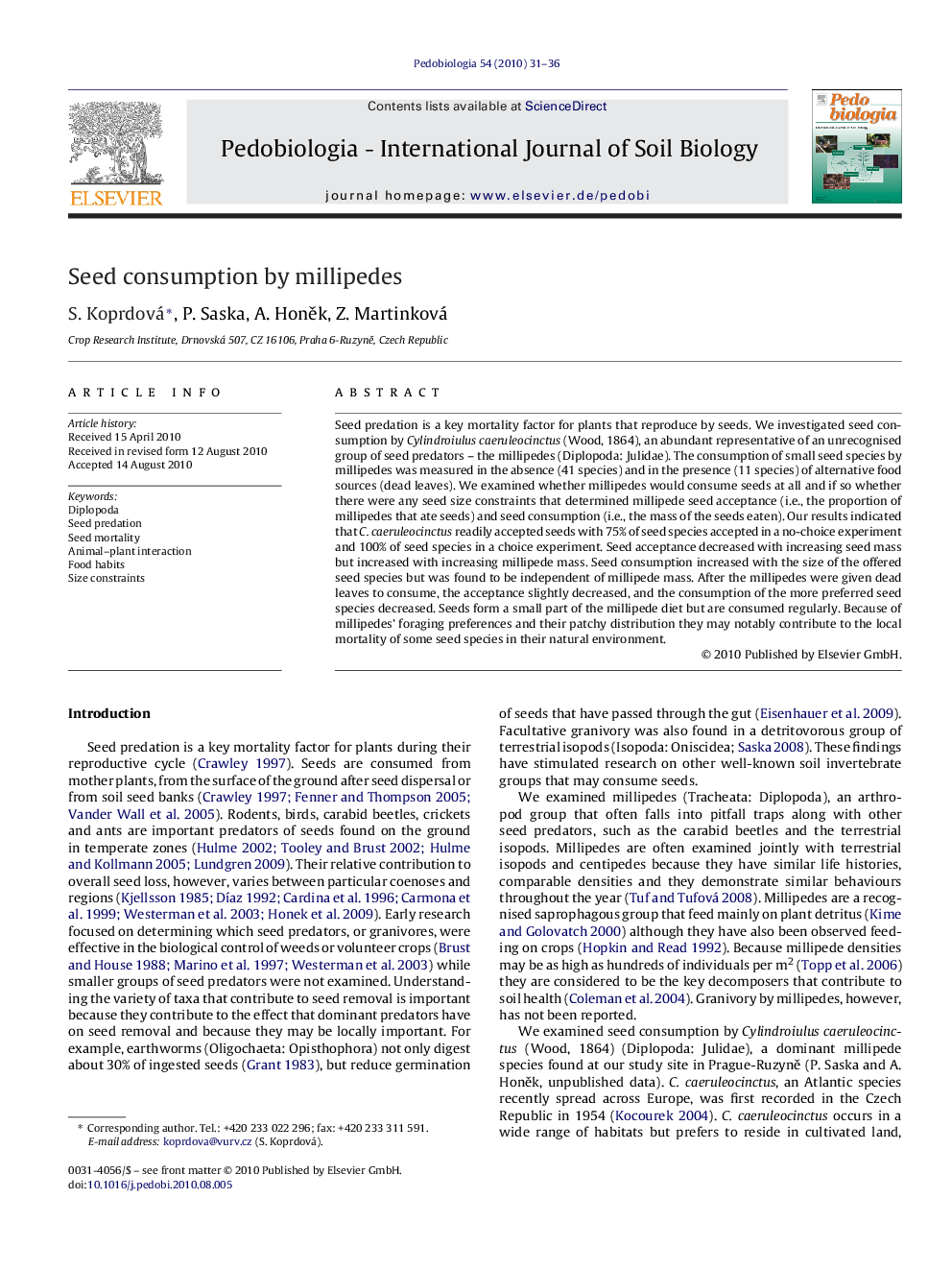| Article ID | Journal | Published Year | Pages | File Type |
|---|---|---|---|---|
| 2061237 | Pedobiologia | 2010 | 6 Pages |
Seed predation is a key mortality factor for plants that reproduce by seeds. We investigated seed consumption by Cylindroiulus caeruleocinctus (Wood, 1864), an abundant representative of an unrecognised group of seed predators – the millipedes (Diplopoda: Julidae). The consumption of small seed species by millipedes was measured in the absence (41 species) and in the presence (11 species) of alternative food sources (dead leaves). We examined whether millipedes would consume seeds at all and if so whether there were any seed size constraints that determined millipede seed acceptance (i.e., the proportion of millipedes that ate seeds) and seed consumption (i.e., the mass of the seeds eaten). Our results indicated that C. caeruleocinctus readily accepted seeds with 75% of seed species accepted in a no-choice experiment and 100% of seed species in a choice experiment. Seed acceptance decreased with increasing seed mass but increased with increasing millipede mass. Seed consumption increased with the size of the offered seed species but was found to be independent of millipede mass. After the millipedes were given dead leaves to consume, the acceptance slightly decreased, and the consumption of the more preferred seed species decreased. Seeds form a small part of the millipede diet but are consumed regularly. Because of millipedes’ foraging preferences and their patchy distribution they may notably contribute to the local mortality of some seed species in their natural environment.
